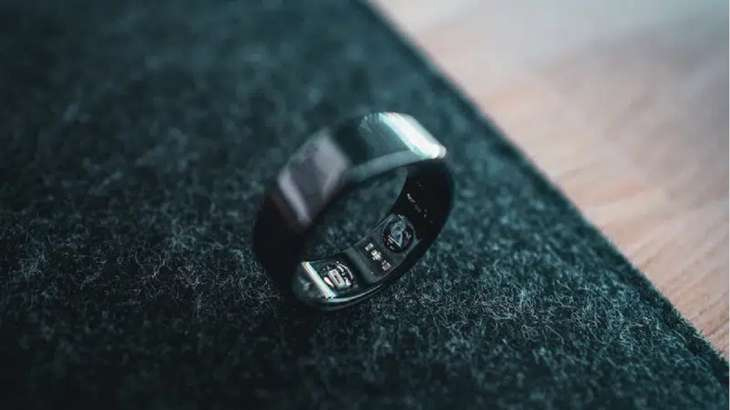Smart Ring For Fidelity: Hype Or Hope For Relationships?

Table of Contents
The Technology Behind Smart Rings for Fidelity
How Smart Rings Work
Smart rings designed for fidelity leverage various technologies to monitor location and activity. These features are intended to provide reassurance and potentially detect infidelity. The technology behind these rings typically includes GPS tracking to pinpoint the wearer's location, heart rate monitoring (used as a proxy for stress levels, which could indicate deception), activity tracking to record movement patterns, proximity detection to determine the wearer's closeness to other individuals, and even notification alerts based on pre-set parameters that might suggest infidelity.
Several brands offer these smart rings, each with slightly different features and capabilities. Some focus heavily on GPS tracking, while others incorporate more sophisticated biometric data analysis. The specific functionalities vary, but the core aim remains consistent: to provide a technological safety net for relationships.
- Key Functionalities:
- GPS location tracking: Pinpoints the wearer's location in real-time.
- Heart rate monitoring: Tracks heart rate variations, potentially indicating stress or anxiety.
- Activity tracking: Records daily activity levels and movement patterns.
- Proximity detection: Detects proximity to other individuals, potentially flagging unusual encounters.
- Notification alerts: Sends alerts based on predefined criteria, such as unusual location or activity patterns.
Data Privacy and Security Concerns
The constant data collection inherent in smart rings for fidelity raises significant privacy and security concerns. The implications of storing sensitive location data, biometric information, and activity logs are substantial. A data breach could expose highly personal and potentially compromising information. Furthermore, the lack of transparency regarding data handling practices by some manufacturers raises additional red flags. Existing data protection laws and regulations, such as GDPR, need to be carefully considered.
- Risks:
- Data breaches: Compromising location, personal information, and potentially intimate details.
- Misuse of collected data: Potential for unauthorized access and manipulation of personal data.
- Lack of transparency: Uncertainty regarding data handling procedures and data security measures.
The Psychological Impact of Smart Rings for Fidelity
Building Trust (or Lack Thereof)
Smart rings for fidelity might initially provide a sense of security for some individuals. However, the continuous monitoring can ironically erode trust and create a climate of suspicion. Instead of fostering intimacy and open communication, these devices could increase anxiety and distrust. Healthy relationships are built on mutual respect, open communication, and transparency – not on technological surveillance.
- Psychological Effects:
- Increased feelings of security (or insecurity): The perceived security can be undermined by the very act of constant monitoring.
- Erosion of trust: Continuous surveillance can breed distrust and resentment.
- Impact on communication and intimacy: Monitoring can hinder open and honest communication.
- Potential for creating a culture of suspicion: Creates a climate of distrust and undermines relationship intimacy.
Is Monitoring a Healthy Way to Manage Relationship Concerns?
Relying on technology to manage relationship concerns is a misguided approach. Addressing underlying relationship issues requires open communication, compromise, and potentially professional help. Instead of using a smart ring for fidelity as a solution, couples should focus on building healthy communication and conflict resolution skills.
- Healthier Alternatives:
- Open and honest communication: Addressing concerns directly and openly.
- Couple's counseling: Seeking professional help to navigate relationship challenges.
- Building trust through actions: Demonstrating commitment and reliability through consistent behavior.
The Social and Ethical Implications of Smart Rings for Fidelity
The Question of Consent and Privacy
The use of a smart ring for fidelity raises serious ethical questions surrounding consent and privacy. Using such a device without the fully informed consent of both partners is a violation of personal autonomy. Furthermore, these rings can be used to exert coercive control, undermining the principles of equality and respect within a relationship.
- Ethical Implications:
- Violation of privacy and personal autonomy: The constant monitoring infringes on individual privacy.
- Potential for coercive control: The device can be used to manipulate and control a partner.
- Legal issues: Data collection and use must comply with data protection laws and regulations.
The Long-Term Effects on Relationships
The long-term effects of using smart rings for fidelity are likely to be negative. Instead of strengthening relationships, they can create deeper issues of distrust, resentment, and dependency on technology for relationship security. A healthy relationship is built on mutual trust and respect, not on technological surveillance.
- Long-Term Impacts:
- Potential for creating a climate of distrust: Constant monitoring can breed suspicion and erode intimacy.
- Increased reliance on technology: Shifting focus from communication to technological solutions.
- Negative consequences on relationship intimacy: Undermining emotional connection and open communication.
Conclusion
Smart rings for fidelity represent a complex intersection of technology, psychology, and ethics. While the promise of enhanced trust is appealing, the potential drawbacks – privacy violations, relationship strain, and ethical concerns – cannot be ignored. Ultimately, the question of whether these rings offer hope or hype rests on a careful consideration of their capabilities, limitations, and the inherent dynamics of healthy relationships. Before considering a smart ring for fidelity, open and honest communication with your partner, and perhaps seeking professional guidance, are far more valuable investments in relationship health. Building a strong relationship requires trust and open communication, not constant technological monitoring. Choosing healthy communication strategies over relying on a smart ring for fidelity is always the better approach.

Featured Posts
-
 Tory Chairman And Reform Uk Clashing Ideologies Despite Shared Goals
May 03, 2025
Tory Chairman And Reform Uk Clashing Ideologies Despite Shared Goals
May 03, 2025 -
 Boj Slashes Economic Growth Forecast Trade War Takes Toll
May 03, 2025
Boj Slashes Economic Growth Forecast Trade War Takes Toll
May 03, 2025 -
 Gewinnzahlen Lotto 6aus49 Mittwoch 9 April 2025
May 03, 2025
Gewinnzahlen Lotto 6aus49 Mittwoch 9 April 2025
May 03, 2025 -
 Alan Roden A Profile Of The Spectators Author
May 03, 2025
Alan Roden A Profile Of The Spectators Author
May 03, 2025 -
 End Of Ryujinx Nintendo Contact Leads To Emulator Shutdown
May 03, 2025
End Of Ryujinx Nintendo Contact Leads To Emulator Shutdown
May 03, 2025
Latest Posts
-
 Finding Your Dream Home In The Sun A Practical Guide To Overseas Property Investment
May 03, 2025
Finding Your Dream Home In The Sun A Practical Guide To Overseas Property Investment
May 03, 2025 -
 Reform Uks Five Biggest Challenges A Potential Political Collapse
May 03, 2025
Reform Uks Five Biggest Challenges A Potential Political Collapse
May 03, 2025 -
 A Place In The Sun Your Guide To Finding The Perfect Overseas Property
May 03, 2025
A Place In The Sun Your Guide To Finding The Perfect Overseas Property
May 03, 2025 -
 Five Threats To Reform Uks Future A Warning For Nigel Farage
May 03, 2025
Five Threats To Reform Uks Future A Warning For Nigel Farage
May 03, 2025 -
 Is Reform Uk Doomed Five Reasons For Concern
May 03, 2025
Is Reform Uk Doomed Five Reasons For Concern
May 03, 2025
